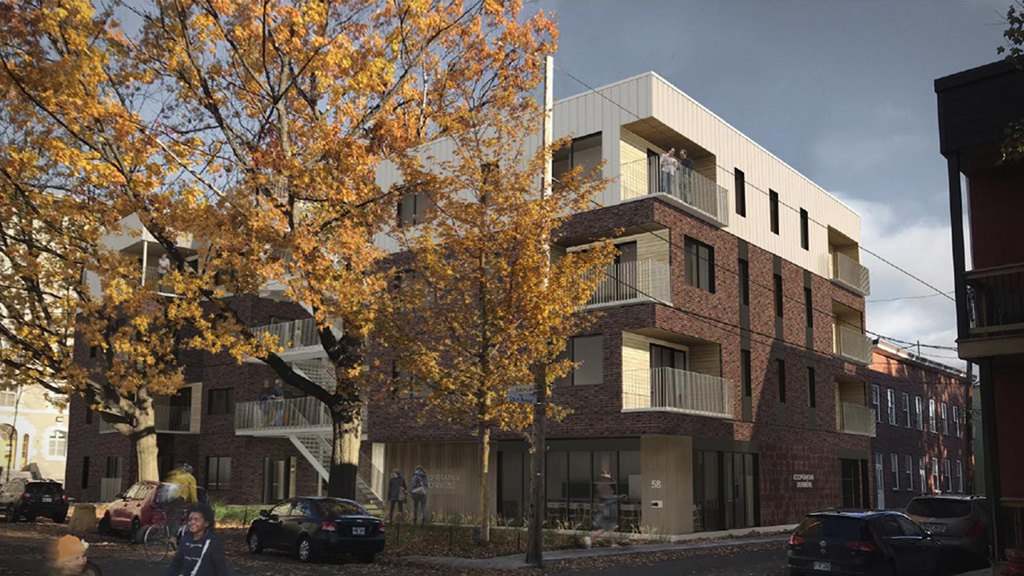Quebec Housing Minister France-Élaine Duranceau has signalled that when it comes to addressing the shortage of available housing in Québec, the old ways of doing things no longer work.
Among the proposals put forward in the Quebec Housing Strategy announcement on Aug. 22 is an aggressive forward leap into volumetric modular housing.
“The adoption of cutting-edge technologies and innovative processes in the field of residential construction is essential to increase productivity, reduce construction times, increase quality and minimize costs,” the announcement said.
Specifically, the government is looking at “prefabricated multi-housing” to address not only the need for more homes, but also the scarcity of labour on construction sites, vulnerabilities due to construction material cost variations, and better overall quality control.
It’s all part of the province’s determination to build the 500,000 new homes needed by 2034, a target significantly higher than previous forecasts had suggested.
“Prefabrication is not limited to modular construction,” the announcement said. “A host of components can be built off-site and transported to construction sites. Prefabrication has a positive effect on the environment, because the entire construction and recycling process is controlled.”
Going beyond supporting individual modular fabricators and various industry initiatives across Quebec, the province will itself invest in a pilot project of 500 volumetric homes.
Starting this week, architects, general contractors and prefabricators will be invited to submit tender proposals for integrated modular projects that can be constructed in the next 18 months. If this first tranche goes well, there will be calls for more similar proposals from the government in the near future, it said.
The government also hints at modifying the permitting and inspection processes under the Régie du Bâtiment du Québec (RBQ), or Quebec Building Authority, in order to speed the assembly and completion of volumetric housing neighbourhoods.
It proposes to do so by establishing code and inspection provisions within the RBQ which could apply to a set of sites, buildings or equipment with similar characteristics. This would limit, “processing on a case-by-case basis, which entails costs and delays,” the announcement said.
Modifications to current permitting and approval processes may go even further.
“The RBQ will offer priority service to builders of major housing buildings for requests for regulatory interpretation, making it possible to quickly give answers and, in many cases, to resolve problems in real time.”
One project that may receive further financial support through the Quebec Housing Corporation is GoKit, which was initiated in 2019 with the construction of a four-module prototype north of Montréal. The ministry describes GoKit as, “an industrialized construction system optimized for a multi-manufacturer network. This project aims to establish a business network for the sector of prefabrication of panels intended for the construction of multiple dwellings.”
GoKit emphasizes energy efficiency through the integration of PassivHaus principles, bio sourced materials and energy from alternate sources.
The government is also committed to contributing to the deployment of Building Information Modeling as an established norm, and will take steps to, “ensure that construction contractors have the digital qualifications required to support this shift.”



Recent Comments